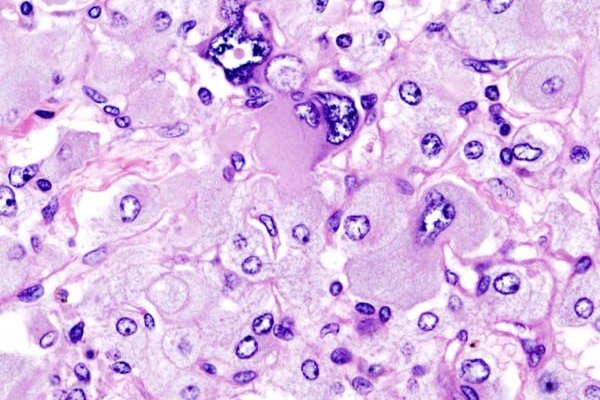
July 31, 2018
 Creative Commons/Via Wikipedia
Creative Commons/Via Wikipedia
This micrograph shows pheochromocytoma, a neuroendocrine cancer that forms inside the adrenal gland.
Patients with adrenal gland cancers soon will have a new treatment option in their battle against the rare and highly-lethal diseases.
The U.S. Food and Drug Administration approved a radiation therapy drug that provides the first non-surgical treatment for the neuroendocrine cancers pheochromocytoma and paraganglioma.
The new radiotherapy treatment, branded Azedra by Progenics Pharmaceuticals, attacks the cancers with high, specifically-targeted doses. Previously, surgery marked the only option for patients.
Pheochromocytoma and paraganglioma tumors form inside and outside of the adrenal gland, respectively. The cancers are rare – only 650 to 2,500 new cases are diagnosed annually in the United States.
Often times, the cancers cannot be treated surgically – and the survival rate is considerably low.
Each year, between 10 and 35 percent of such cases are deemed metastatic or locally invasive at diagnosis. The five-year survival rate of inoperable cases can be as low as 12 percent.
The treatment's approval was based on a multi-center trial conducted by researchers at the University of Pennsylvania's Abramson Cancer Center.
The trial found Azera provides a dual benefit to the patients. It both controls the tumor and the hypertensive symptoms associated with the cancers.